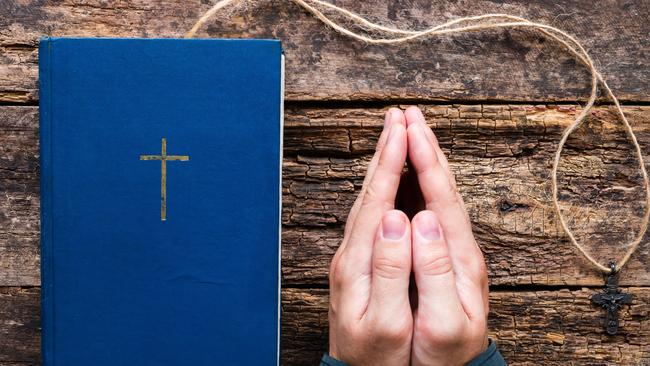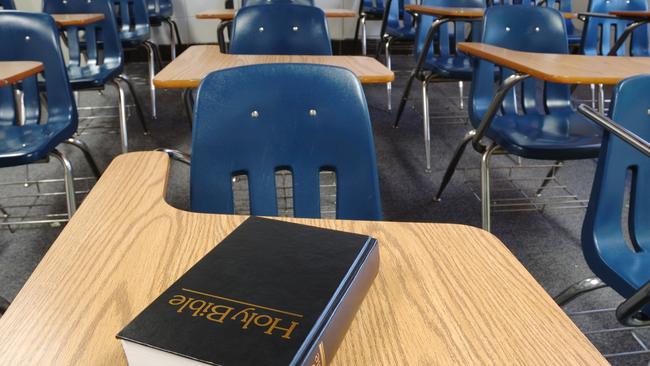Scripture screening in public schools to weed out radicals preaching to our kids
PARENTAL fears that scripture teachers are aggressively recruiting followers or spouting radical fundamentalist views in our public schools are set to be allayed.

NSW
Don't miss out on the headlines from NSW. Followed categories will be added to My News.
SCRIPTURE teachers in public schools will face tougher screening from next year to prevent radical lessons and religious recruitment campaigns.
Churches, fringe faith groups and the Education Department have developed a new draft of quality standards after parents complained there was not enough scrutiny of scripture teachers.
Public schools break for 30 to 60 minutes a week to allow outside scripture teachers from 107 religions, or ethics teachers, to take classes without a teacher present.
Faith groups will have to sign a statutory declaration once a year, attesting their scripture teachers have read and understood basic educational training material and don’t have prior convictions for violence, sexual assault or dealing drugs.

Scripture providers have previously come under fire for obscuring their syllabuses and complaints handling processes but the new standards dictate both documents must be posted online.
All Faiths Special Religious Education chair Rachele Schonberger claimed they would lift teaching quality and weed out rogue faiths.
If faith groups don’t meet the new standards they will be banned from teaching in schools.
“Gone are the days where Special Religious Education teachers were seen to be doing their own thing,” Ms Schonberger said.
PUSH TO EJECT SCRIPTURE CLASSES FROM SYDNEY AREA
SCIENCE V SCRIPTURE: WHAT IS BEING TAUGHT IN SCHOOLS?
The changes will “benefit parents by improving the accountability and transparency for providers”, a spokesman for Education Minister Rob Stokes said.
Almost 75 per cent of high school principals surveyed would rather their students were given the opportunity to “opt in” to scripture classes, rather than having to actively withdraw.
Asked whether it would adopt the opt-in approach, the minister’s office stuck by a “longstanding policy and legal framework supporting freedom of religion and conscience in NSW public schools”.
RELATED:
Close to 70 per cent of primary school-aged students attend scripture classes, whereas only 30 per cent take part once they reach high school.
While the Education Department was not directly involved in drafting the new standards, it has offered to give faith groups advice on “age-appropriate learning experiences”.
Toughening transparency and accountability was a recommendation of a review released in April last year.


